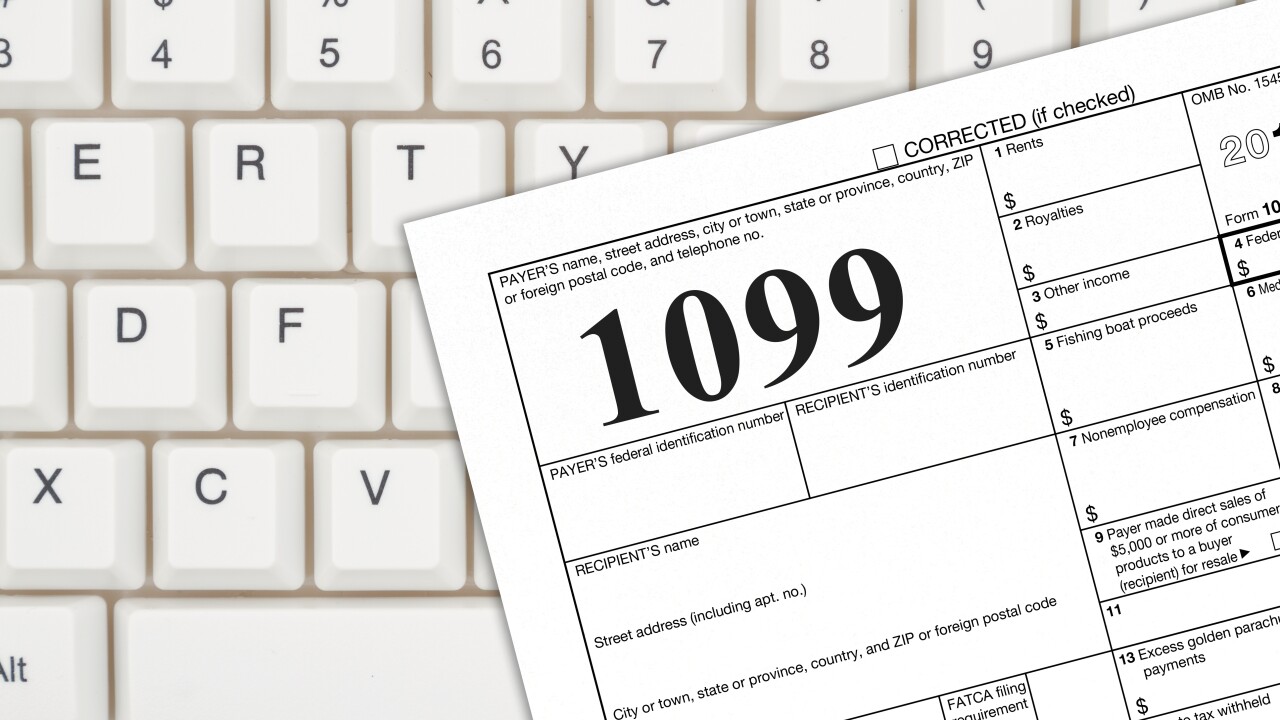The American Institute of CPAs has sent tax reform recommendations to five of the 11 working groups on the House Ways and Means Committee tasked with studying various aspects of tax reform.
The AICPA made recommendations to the Small Business/Passthroughs Tax Reform Working Group, the Education and Family Benefits Tax Reform Working Group, the Pensions/Retirement Tax Reform Working Group, the Charitable/Exempt Organizations Tax Reform Working Group and the Income and Tax Distribution Tax Reform Working Group.
The AICPA’s recommendations to the Small Business/Passthroughs Tax Reform Working Group focused on tax provisions affecting small businesses, partnerships and S corporations. The AICPA said Congress should consider parity for employees and self-employed individuals in regard to the tax treatment for health insurance costs under the Self-Employment Contributions Act. It also encouraged Congress to examine transfers of partnership suspended losses between spouses and former spouses upon a Section 1041(a) exchange, and the ability of husband and wife partnerships that are recognized under state law to elect qualified joint venture status under Section 761(f).
The AICPA also urged Congress to allow an offset to the built-in gains tax for charitable contributions and foreign tax credit carryforwards from a C year, and provide a new 120-day post-termination transition period beginning on the date that a taxpayer files an amended Form 1120S, U.S. Income Tax Return for an S Corporation. Congress should also allow S corporations to have nonresident aliens as shareholders and potential current beneficiaries of electing small business trusts; and the AICPA urged repeal of Section 1362(d)(3) of the Tax Code, which terminates an S election due to passive investment income that exceeds a certain threshold, or increases the passive investment income threshold of S corporations under Section 1375(a)(2) from 25 percent to 60 percent.
The AICPA told the Education and Family Benefits Tax Reform Working Group that Congress should consider changes aimed at harmonization and simplification of education-related tax provisions; as well as simplification of the provisions for calculating the tax on unearned income of a child (i.e., “Kiddie Tax”) by removing the link with the parent’s income tax return and by applying the income tax rates for estates and trusts. The AICPA also recommended standardization of the allowable mileage rates for business expense, medical expense, mileage expense and charitable contribution purposes; and the allowance of certain attorney fees and court costs as deductions for adjusted gross income. The AICPA also encouraged clarification and simplification of reporting of cancellation of debt income.
The AICPA’s recommendations to the Pensions/Retirement Tax Reform Working Group centered on issues associated with retirement plans and trust, estate and gift taxes. The AICPA recommended that Congress repeal the requirement that benefits become fully vested upon a partial termination of a qualified retirement plan. Congress should also consolidate and simplify the multiple types of tax-favored retirement plans and the rules governing them, the AICPA suggested, and allow administrative relief for certain late qualified terminable interest property (QTIP) and qualified revocable trust (QRT) elections. In addition, the AICPA urged Congress to provide consistent treatment of all federal tax payments of trusts and estates; and permit amendment of section 67(e) to simplify the law and allow estates and nongrantor trusts to fully deduct the cost of complying with fiduciary duties in administering estates and trusts.
In its comments to the Charitable/Exempt Organizations Tax Reform Working Group, the AICPA said Congress could improve the administration of the Tax Code by addressing a number of areas, including standardization of allowable mileage rates for tax purposes; in addition to exemption from the filing requirement of Section 6034(a) trusts with charitable deductions only from flow-through entities. Congress should also permit a single six-month automatic extension for the entire Form 990 series and other information, excise, and income tax returns of exempt organizations, the AICPA suggested. Congress also should reinstate and make permanent the fair market value exception under Section 512(b)(13) and removal of the binding contract requirement; and expansion an exception from Section 509(f)(2) that prohibits an organization from qualifying for Section 509(a)(3) status if it accepted certain gifts, to be consistent with the change made to Section 4958(c)(3)(C).
The AICPA’s recommendations to the Income and Tax Distribution Tax Reform Working Group relate to whether there should be an annual adjustment for inflation for various dollar amounts provided in the Internal Revenue Code. For example, inflation adjustments were provided for 2013 for the Kiddie Tax threshold, the gift tax and foreign income exclusions and retirement saving vehicles such as 401(k) and Individual Retirement Account plans. However, the $1 million amount established in 1958 under Section 1244 of the Tax Code governing losses on small business stock has never been adjusted for inflation.





